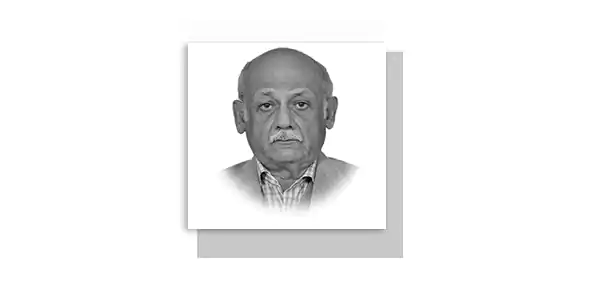Dangerous consequences of using religion in politics
His propaganda and the deep state elements have even influenced the courts to change the discourse of a fair trial phenomenon to their political opponents like Nawaz Sharif to be disqualified on a bizarre Aqama logic. Khan also used slogans like “Naya Pakistan” (New Pakistan), “Riyasat-e-Medina” and “Tabdeeli” (Change) to appeal to the masses and undoubtedly succeeded as his opponents have to-date failed to apprehend his lies or infamous U-Turn statements. Similarly, Trump and his supporters spread fake news in the United States, such as the “birther” conspiracy theory, which claimed President Obama was not born in the United States. Their style of politics takes us back to history when Hitler used the same strategy to intimidate his opponents. Can there be any comparison? Comparing these tactics to those used by Hitler is not a new idea. Instead, Hitler’s populism can be argued as an inspiration to the present-time populist leaders adopting his propaganda tactics. Hitler wrote extensively about the power of propaganda and how it could be used to manipulate the masses in his book “Mein Kampf.” Likewise, totalitarian regimes widely studied and imitated his propaganda techniques throughout the 20th century. A totalitarian regime is a government characterised by a single ruling party or individual’s absolute control of its citizens and institutions.
In’ The Origins of Totalitarianism, Hannah Arendt, a prominent political theorist, argues that such regimes are characterised by their ‘mobilisation of the masses’ and establishing a ‘totalitarian society’ typically sealed off from the outside world.” The totalitarian state uses various methods to control its population, including propaganda, censorship and surveillance and seeks to eliminate any potential sources of opposition or dissent. This extreme form of authoritarianism has been seen in various historical contexts, including Nazi Germany under Adolf Hitler and Stalinist Russia under Joseph Stalin. However, Hitler’s approach to propaganda was scientifically designed to manipulate the German population into accepting his fascist ideology and aggressive foreign policy like Modi, Trump and Khan.
Hitler used techniques like mass rallies and public speeches to appeal to his audience’s emotions rather than their reason and his use of simple, catchy slogans, such as “Ein Volk, ein Reich, ein Führer,” was designed to create a sense of unity and to make his message more memorable. However, he also used propaganda to demonise his opponents and create a sense of threat and danger, leading to a monopoly on information and silencing dissenting voices. The rise of populist leaders like Modi, Trump and Khan, who employ similar tactics, poses a significant threat to democracy. As responsible journalists, we must be vigilant and recognise the dangers of propaganda and fake news. It is crucial to question the messages we receive from politicians and the media and to seek out diverse perspectives to gain a more comprehensive understanding of events. We must develop critical thinking skills and be media literate to combat the dangers of propaganda and fake news. We must question the sources of information and be willing to fact-check the news we consume which is not impossible, yet very difficult to work. Being journalists and social media celebrities, we must also hold ourselves, politicians and the media accountable for their statements and demand government transparency and accountability.
In conclusion, the dangers of fake news, Populism and propaganda politics cannot be overstated, as they can have far-reaching consequences on societies and democracies. The example of Hitler’s Nazi regime shows how propaganda can manipulate the masses and lead to totalitarianism. Today, populist leaders like Trump, Modi and Imran Khan continue employing similar tactics to promote their agendas, leading to the erosion of trust in democratic institutions and the polarisation of societies. In today’s world, where information is at our fingertips, we must be vigilant about news and information we consume. Unfortunately, fake news and propaganda have become pervasive, leading to the spread of misinformation and the manipulation of public opinion. As a Pakistani journalist in the UK, who has seen the dangers of propaganda and populism firsthand, I believe that media literacy and critical thinking skills are essential to combat these challenges. As citizens, we are all responsible for spreading awareness and not getting trapped in the web of fake news propaganda. Therefore, we need to cross-check the content we consume and develop a discerning eye for what is true and what is not. That can be achieved through investing in media education and creating awareness programs that teach people how to identify fake news and propaganda.
In addition, governments must ensure that the media operates freely and independently, with transparent regulations that protect the public interest. That will ensure that everyone can access global news and information without being manipulated by the bombardment of fake news algorithms. By empowering citizens, especially women, with knowledge and information, we can build a more resilient and informed society better equipped to resist the dangers of fake news, populism and propaganda politics. The rise of populist leaders and fake news propaganda threatens democracy, leading to a monopoly on information and silencing dissenting voices. By developing critical thinking skills and becoming media literate, we can combat the dangers of propaganda and fake news and work towards a more transparent and accountable society. Let us learn from history and reject the divisive tactics of populist leaders who seek to manipulate and control the masses. Pakistan Zindabad! Together, let us stand against the dangers of fake news and propaganda and work towards a brighter future for our nation.—Concluded.
—The writer is Professor of History, based in Islamabad.
Email: [email protected]










